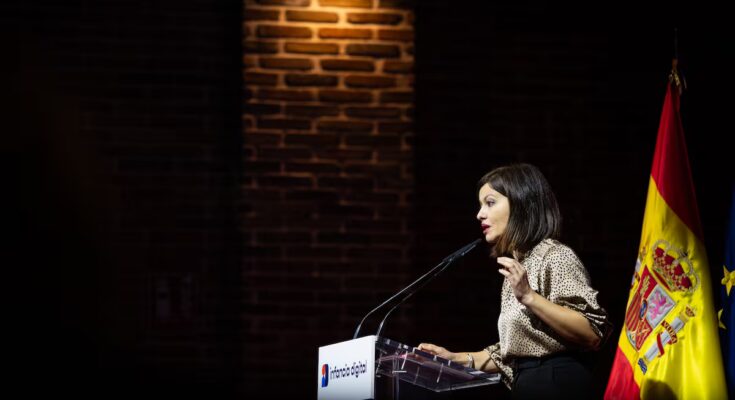The Ministry of Youth and Children wants to extend the statute of limitations for sexual crimes against minors by ten years. At this time, the clock starts ticking when the victims turn 35 years old. That is, from that moment on, the period in which the criminal liability of the perpetrators expires is calculated, depending on the severity of the crime. The approach of the department led by Sira Rego is to bring them to 45, according to ministerial sources. This is stated in the reform of the law on the protection of children and adolescents against violence (Lopivi) which the Ministry has already developed and which is now being negotiated within the Government. The text has been under discussion with other ministries, such as Interior and Justice, for a few weeks. The objective, these sources underline, is that the document can pass to the Council of Ministers in the next few weeks, to start the parliamentary process.
In Spain, sexual crimes have a minimum statute of limitations of five years and a maximum of 20, in the most serious cases. With the reform proposed by Rego, therefore, these crimes would not become statute-barred until the victims have reached the age of 50, given that the term from which it will begin to run will be set at 45. The reform implies the modification of the penal code.
Currently, there is already an avenue open to Congress to study the imprescriptibility of these crimes. A year ago the Chamber approved to take into consideration the reform of the penal code so that pedophilia crimes punishable by more than five years in prison are not barred. Something that already happens in countries such as Belgium, Holland, Switzerland and Sweden. In any case, the parliamentary calculation has become enormously complicated since Junts announced that he will not support the government’s initiatives.
Victims of pedophilia in the Church have been asking for this for years. One of the fundamental problems that victims of childhood sexual violence face is that it takes them a long time to recognize themselves as victims and to be able to talk about it. And, therefore, also in reporting. According to a report recently presented by two large global victims’ associations – which in turn cites a study carried out in Germany based on the testimonies of victims of pedophilia in religious and secular institutions – the average age at which survivors report abuse is 52 years.
In recent weeks, details of the reform that the ministry is proposing to Lopivi have become known. Among these, for example, the creation of a commission for the recognition of victims of sexual violence during childhood, especially within public institutions (such as educational centers) and private institutions (such as the Church or sports clubs). Something that victims whose cases are already prescribed could resort to, who could be recognized as such without having a court sentence, which is very common among those who suffered abuse decades ago in the clerical field.
On Tuesday itself, Rego shared on social networks his concern about the case of pedophilia revealed by this newspaper, which led the Vatican to open an investigation against a Spanish bishop, Rafael Zornoza. “Unbearable. We will amend the Lopivi to create a commission for victims of sexual violence, mainly by public or private institutions, like this one, and we will extend the statute of limitations years for these crimes. It is justice,” the minister said.
Lopivi, approved in 2021, has already extended the statute of limitations for sexual crimes against minors to 35 years, which until then began to run when the victims turned 18. And it has incorporated measures to protect children who are victims of any type of violence. Although it was considered a pioneering law, children’s organizations are calling, four years later, for this law to be completed.
Ministry sources explained a few weeks ago, when the main lines of the amendment proposed by Youth and Childhood were known, that since its entry into force structural gaps have been identified, especially in terms of legal protection of minors. For this reason they propose measures to avoid re-victimisation and strengthen the right to be heard of minors. Measures on indirect violence are also included.



